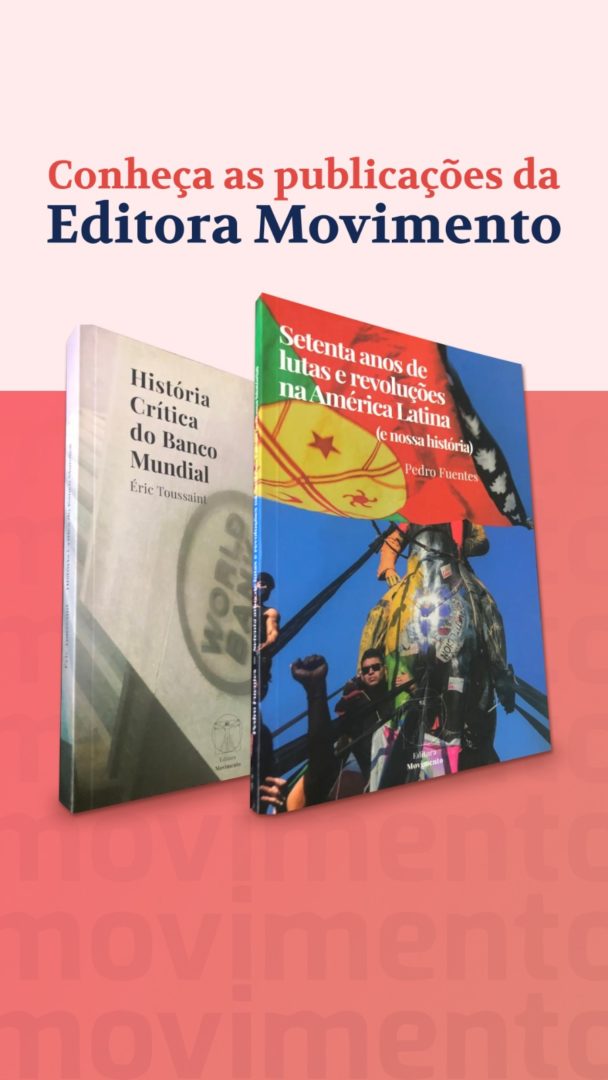What role does PSOL play in the antifascist struggle?
PSOL’s Role in Facing the Challenges of Present-Day Brazil
In a world where far-right groups have the strength to contest political power in many countries, and have succeeded in doing so in significant nations, it makes sense and is necessary, whenever possible, for revolutionary Marxists to engage in unified action with the liberal bourgeoisie. Sectarian positions within the socialist movement have denied this necessity. However, sectarianism isn’t predominant within the Brazilian left. On the contrary, the dominant tendency is characterized not only by the defense of unified action but also by the strategy of forming a coalition government with the liberal bourgeoisie. In the Brazilian context, this isn’t even seen as a deviation; it’s inherent to the majority of the Brazilian left. This strategy is based on two certainties: first, the political crisis of the bourgeoisie often creates opportunities, allowing emerging parties to gain strength; second, the bourgeoisie does not support governments that lack representation of their interests, even if such representation is minimal. Therefore, left-wing political forces seeking a path to government within the confines of bourgeois dominance accept alliances with the bourgeoisie and transform these alliances into a strategic approach. It’s understood that once in power, they adopt one variant or another of the economic policies favored by the ruling class. This aligns with the orientation of Social Democracy and reformism.
The PT has consolidated this policy since at least 1994, with a well-developed theory, program, and strategy. Under the leadership of Guilherme Boulos, the PSOL, lacking theoretical elaboration and strategy, has pragmatically and empirically adopted this course of action in São Paulo. This represents a novelty that will have significant implications for the left in the years to come.
What is notable in this process is that we are witnessing a period of political substitutionism. The liberal bourgeoisie, lacking the strength to confront the far-right alone and win elections, invites and accepts the PT as the leading force in government. Aware that it needs to maintain grassroots engagement to confront the far-right, the PT invites the PSOL to join in governance. For the PSOL, the collateral damage, in historical terms, is the reduction of its role in popular struggles, at least under the leadership of Boulos. The question arises: what is the cost of forsaking street mobilization in favor of governmental positions? And for what purposes?
Leon Trotsky elucidated that in historical development, particularly in countries on the capitalist periphery, social classes often find themselves compelled to undertake social and economic tasks typically assigned to other classes. For example, workers may need to carry out tasks historically implemented by the bourgeoisie in the core countries of capitalist development. This formulation, which is part of the more complex theory that Trotsky referred to as the law of uneven and combined development, was broadly confirmed during the 20th century. Agrarian reform and national independence, for instance, were tasks achieved by the bourgeoisie in central capitalist countries such as the USA and France. In Russia, however, achieving agrarian reform required the defeat of the bourgeoisie by the proletarian revolution. Similar dynamics were seen in China and Cuba. In special cases like Korea, social revolution shook the country, leading to foreign intervention and the implementation of agrarian reform in the occupied zone to prevent the working class from gaining further strength and seizing power. Countries that accomplished these tasks experienced significant developmental leaps.
In Brazil, historical development was interrupted. Neither agrarian reform nor full national independence has been achieved. Agrarian reform remains distant, and true national independence is still elusive, despite the country’s significant industrial development. The bourgeoisie has failed to enact progressive reforms. These discussions are worthy of revisiting. After all, communist parties led by Stalinism insisted on the need for alliances with the bourgeoisie to accomplish these tasks. However, historical evidence did not favor the Communist Party’s approach.
Today, we face the threat of historical regression. Not only has the bourgeoisie failed to fulfill its tasks, but a significant faction has also begun to undermine and oppose the achievements made under its leadership. This is evident in the case of bourgeois democratic regimes. I will emphasize this again because history has shown that the bourgeoisie has organized several coups to dismantle liberal democracies. Additionally, in a central country like Germany, the bourgeoisie supported the Nazi regime, which was the most extreme example of the erosion of democratic liberties in a capitalist state. It is a fact that today there is a division within the ruling class. The question is whether the left should strategize to govern with one of these factions of the bourgeoisie and trust in the democratic “inclinations” of one faction. Should the left align itself with one faction and govern on their terms?
In many countries around the world, we see sectors of the bourgeoisie implementing policies that curtail democratic freedoms and even threaten to abolish them altogether. Consequently, there has been a clear division within the bourgeoisie during this historical period. One sector is actively seeking, planning, and working towards a historical regression, while another sector is attempting to maintain the achievements of the previous period and is still invested in a combination of capitalism and liberal democracy.
With one sector of the bourgeoisie adopting neofascist policies, there is a process of class substitution underway. Workers are being compelled to defend the achievements of a historical period linked to bourgeois democratic struggles. Class organizations often find themselves tasked with defending democratic liberties, and sometimes even defending the bourgeois democratic regime itself.
The central question in this process of substitution is whether the working class should forge a strategic alliance with the bourgeoisie and govern alongside them. The majority of working-class leadership has long accepted this alliance plan, incorporating significant portions of the economic, programmatic, and social aspects of the ruling class and positioning themselves in place of bourgeois parties to manage capitalist interests through state apparatuses. In Brazil, the Workers Party (PT) is an exemplary case of this phenomenon. They have pursued this strategy since 2003, and the situation remains unchanged. Due to its origins as a party rooted in the working class, the PT fought against Bolsonaro. A portion of the bourgeoisie had to resort to the PT because they recognized their inability to gather political strength independently to challenge Bolsonarism.
The appeal to the PT was possible because throughout history, Lula’s leadership had already demonstrated that they would not break with the logic of big capital. On the contrary, the PT agreed to become, for the first time in the country’s history, a political stabilizer for the establishment, whose social essence is opposed to the party’s foundational principles. This was the significance of the Letter to the Brazilian People (Carta ao Povo Brasileiro). When they returned to power after the parliamentary coup of 2016, the nomination of Alckmin as vice president signaled that nothing had changed in Lula’s political thinking. Except for one crucial aspect: Lula was already aware that he could not secure a solid agreement to defend a common regime with all sectors of the Brazilian bourgeoisie, or at least a significant portion of it. The division among the bourgeoisie was too deep. No matter how hard they tried, a significant portion would oppose not only the government but also the political regime it defended. The coup-related disorder on January 8th was just a televised sample.
Against this backdrop, Lula not only deepens his alliance with the liberal bourgeoisie but also focuses on maintaining minimal street mobilization capacity, renewing political cadres, and maintaining social and electoral bases among the youth. This is the guiding principle behind the Boulos/Marta alliance. The role of Boulos is to enhance mobilization capacity and retain youth militancy, which the PT has shown to lack. Marta is to demonstrate that Boulos is under Lula leadership and, logically, to provide evidence that the liberal bourgeoisie has nothing to fear.
However, assuming the confrontation against neofascism from a position within the government, in alliance with the liberal bourgeoisie, inevitably reproduces liberal politics. This entails positioning oneself as a defender of a bourgeois state and relinquishing the opportunity to occupy a position of contention to build a critical pole against the political regime on one hand, while being antifascist on the other. This does not mean that PSOL should abandon its pursuit of power. However, the role of alliance with the bourgeoisie is of the PT, and PSOL has an entirely different role. While the PT’s alliance with the liberal bourgeoisie may temporarily stem the tide of the far right and neo fascism, it is essential to remember that as long as capitalism exists, fascism remains a possibility. It is also crucial to remember that the bourgeoisie has failed to achieve progressive tasks historically assigned to them. Furthermore, a significant bourgeois sector has already abandoned liberalism in politics, forsaking democracy, and, when faced with threats to their class interests, preferring fascists over the working class.
PSOL’s place is in the struggle for a new political regime. To achieve this, it cannot be a part of the liberal bourgeoisie government. Instead, whenever possible, PSOL should confront fascist forces alongside the liberal bourgeoisie. However, it must maintain its independence. PSOL can seek broad unity and support the government when attacked by the far right. It can even identify and support progressive measures that benefit the people. However, maintaining independence is essential for historical justification and strategic usefulness for the Brazilian working class. The PT has already been shaped by history to defend the regime and use the strength of the working class in a common government with the liberal bourgeoisie. Being merely an appendage is not a desirable position.






















































